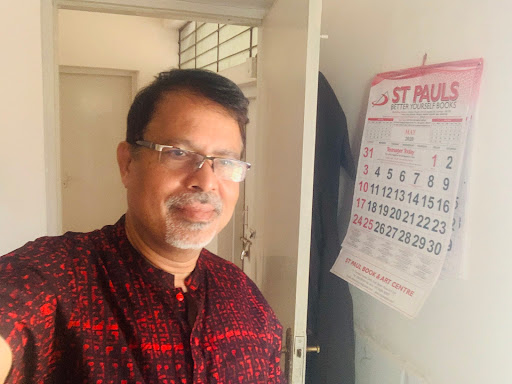Our vocation is the fruit of God’s grace working on
human nature. Religious life is a consecration of the
whole person (c.607§1), and therefore a crisis may
come about at one or more levels, from the spiritual
to the psychological. Religious vocations are
simultaneously long-lasting and fragile, rather like
glass which can last for ages and yet be broken at any
moment. A crisis in a religious vocation may have
several causes.
Here are some preliminary considerations:
• a perpetually professed brother has received a call
from God, publicly accepted through the ministry of the
Church, and generating fraternal life in common till death.
The vocation of every brother is therefore to be valued,
sustained, and struggled for by everyone concerned, not
least those with authority.
the manifestation of a crisis in a religious may well say
something important, and at times negative, about how
selection and formation have been conducted in the
Institute, how authority has or has not been exercised, and
about the kind of fraternal and religious life experienced.
The crisis in an individual may be the symptom of failure
elsewhere.
•No appropriate natural or spiritual means, from medical
treatment to retreats, should be neglected to try and
overcome the crisis.
•To be a minister is to receive authority from God, to
exercise it in a spirit of service, to be docile to the will of
God, to show reverence for the human person, and not to
fail to decide and command (c.618). Since the obligation of
minister is to foster the charism of the order, he is the initial
person to deal with the brother. Minister is to give the
brother opportune assistance in their personal needs, be
solicitous in caring for and visiting the sick, console the
fainthearted, and be patient with all (c.619).
The fruitful relationship of minister and his council is going to
be particularly relevant when an individual brother is in crisis.
‘Reverence for the human person’, a striking expression, must never
be denied by the minister to a brother, and it reminds us of the
uniqueness and value of each brother.
Canon law offers a number of responses to situations where religious life is no longer sustainable or is rejected in some important aspects. These situations may or may not involve fault on the part of an individual. The minister may have the initial task of deciding which course to pursue most appropriately, and this is a delicate phase needing prayer, thought and a good personal knowledge of the brother concerned. Many factors will need to be considered, ranging from the welfare of the individual to the common good
Canon law offers a number of responses to situations where religious life is no longer sustainable or is rejected in some important aspects. These situations may or may not involve fault on the part of an individual. The minister may have the initial task of deciding which course to pursue most appropriately, and this is a delicate phase needing prayer, thought and a good personal knowledge of the brother concerned. Many factors will need to be considered, ranging from the welfare of the individual to the common good







No comments:
Post a Comment